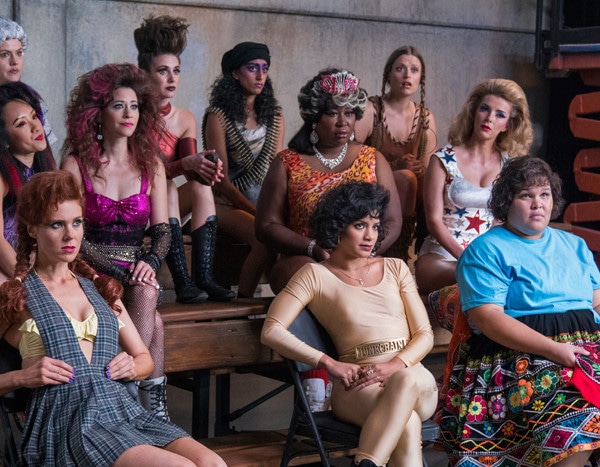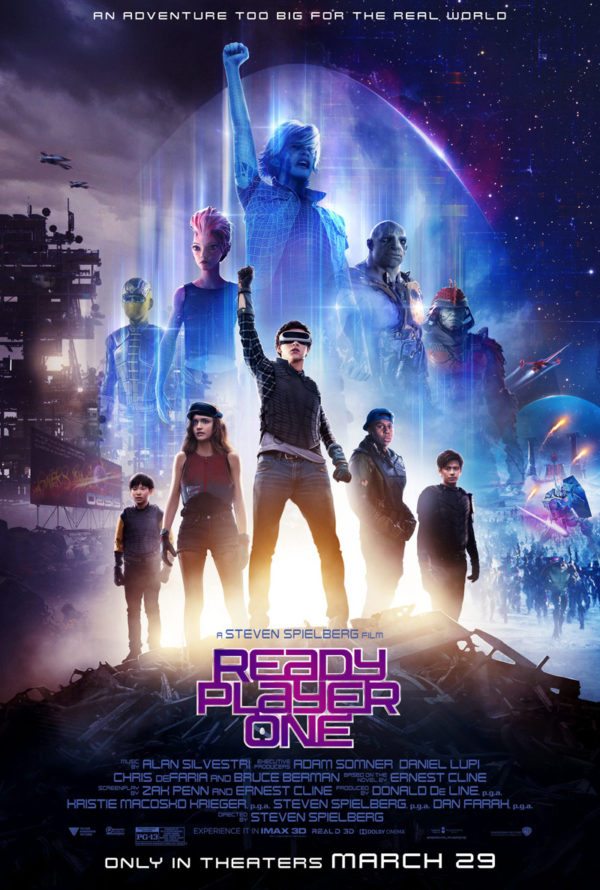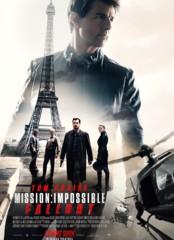Cloak and Dagger, season 1 (2018)
Following its trend of using TV media to tell stories of its lesser-known characters, Marvel released the first season of the mild cult 1980s classic comic Cloak and Dagger on the Freeform Network this past summer. I really wasn't expecting much, so was pleasantly surprised at this rather well-done, thoughtful, and unique entry into the massive Marvel Cinematic Universe (MCU).
The story follows a pair of teens in modern New Orleans - Tandy Bowen and Tyrone Johnson. The two both lost loves ones on the same night, eight years prior to the current day - Tandy's father dies in a car wreck, while Tyrone's older brother is shot by a corrupt police officer. Both deaths are somewhat caused by a massive explosion at an off-shore oil rig, which somehow imbues Tandy and Tyrone with strange powers that are mysteriously linked to each other. These powers do not manifest themselves until eight years later, when the two are roughly 17 years old. By this time, Tandy has become a young con woman living on the streets with her boyfriend, while Tyrone is a successful scholar and athlete at a prestigious private school. Both of their worlds are thrown off course once again as their powers start to manifest themselves, and details about the deaths of their family members start to surface from the past.
In a rather tidy ten episodes, Cloak and Dagger carves itself a new place in the ever-expanding universe of Marvel's TV show lineup. After Hulu's Runaways, this is only the second show that focuses specifically on teenagers. However, while Runaways is a lighter show with an ensemble cast that creates a sort of team of super-powered teens, Cloak and Dagger is moodier, of a notably measured pace, and focuses much more on the personal tragedies of two young people and how this affects their daily lives. Not every dramatic moment hits, but more than enough of them land to make Tandy and Tyrone's stories meaningful and compelling. It also helps that the revelations about their powers is much more of a slow burn than any other MCU TV show to date, which is something I can appreciate. The nature of their powers is enigmatic enough to be highly intriguing, making for plenty of potential in the future stories.
The show also stands out through its setting of New Orleans. While nearly every other MCU movie or TV show has taken place or ended up in the metropolises of New York City or Los Angeles, Cloak and Dagger selects a city unique in myriad ways. And the writers effectively use many of the fascinating and disturbing details about the city's history, weaving them into Tyrone and Tandy's own story and lending them a mythical quality.
This first season probably could have used a tad more punch in the way of a clear arch-nemesis, and the pacing was sometimes a bit too slow. Still, it was a strong opening season, and I look forward to seeing how the story and characters mature through the second season, which has already been announced for release early in 2019.
Iron Fist, season 2 (2018)
While not a "good" season, it is definitely an improvement over the ultra-bland first season.
Season 1 of Iron Fist had almost no end of problems. While having a decent premise to work with, the 13-episode season meandered, fumbled, and offered little more than untapped potential, uninteresting and unresolved plot threads, and thoroughly uninspired writing and action choreography. There were few elements to that opening season that were outright bad, but there was nothing that ever rose higher than mediocre. I was frankly somewhat surprised that the show was renewed for a second season.
Well, it seems that the show-runners got the memo, at least on some of critics' and the viewing public's issues with that first season. Season two serves as a fairly decent course correction, even if it still falls short of the overall quality of its Netflix MCU peer shows.
In the aftermath of the The Defenders crossover mini-series (which also served as Daredevil season 2.5 and Iron Fist season 1.5), Danny has started living with Colleen in her now-converted dojo in Chinatown. While working a menial day job as a furniture mover, Danny takes to the streets at night, using the Iron Fist to quell gang violence in the area. Returning to the scene is Davos, Danny's old friend and rival from Kun Lun. Davos's disgust at Danny has grown stronger, as he sees Danny as having stolen his birthright - the power and the title of the Fist - and does not seem to be doing any meaningful work with it. Davos schemes with Danny's childhood friend Joy Meachum to rob Danny of the Fist, so that Davos can clean up New York City in the way that he sees befits the revered position of The Immortal Iron Fist.
The plot is notably better in this season, thanks to its relative simplicity. It is not nearly as lean and focused as some of the better Netflix MCU shows, but it at least set up the conflicts within the first two episodes and never strayed too far from them. This was one of the many issues of the first season. It was also a wise move to pare the season down from 13 episodes to 10. The show-runners still somehow managed to make the show feel slow and dull more than a few times, but it still felt livelier than the first season. The greatest confrontation - between Danny and Davos - also builds nicely into the final few episodes, to the point that I was actually interested in seeing its conclusion. This was something I could never say about the first season, which by the end I was slogging through just for the sake of some kind of closure.
The fighting scenes were certainly better this season, if not nearly on par with the best scenes from Daredevil or The Punisher. Finn Jones still has none of the carriage or athleticism of someone who is supposed to be "the greatest martial artist on earth." Fortunately, many of the fighting scenes involve Jessica Henwick's Colleen and Sacha Dhawan's Davos. Dhawan in particular has all the stuff that Jones should have for a screen martial artist - power and grace, to go along with his intensity. It is fitting that the Davos character's entire argument is that Danny is too soft for the job of Iron Fist, as I think Jones unintentionally exhibited through his lack of fighting presence.
One of the most serious - and relevant - issues with this show was the issue of white-washing. While the original Iron Fist character created in the 1970s was always a white man, it simply was never a good look in today's climate to blatantly miss the chance to cast an Asian person as a character who is trained and obtains their title in a Himalayan monastery. Fortunately, the second season of Iron Fist resolves this in a way that I found both surprising and mostly satisfying. It's unclear just how long the show will continue with what it has set up, but I truly hope that it stays the course that it has now re-worked for itself.
If this show can just find some writers who know how to offer entertaining dialogue, it will actually be a true peer with its Netflix brethren. Probably the most obvious weakness that carried over from the first season was the lack of any engaging, creative dialogue. The actors do their best to sell their lines, with Alice Eve in particular standing out with her chilling portrayal of "Typhoid" Mary Walker.
I have to say that I'm a bit curious about where this series is now going, and I may even go back and rewatch this second season at some point in the future. These are things that I couldn't say after slogging through the initial offering.
Following its trend of using TV media to tell stories of its lesser-known characters, Marvel released the first season of the mild cult 1980s classic comic Cloak and Dagger on the Freeform Network this past summer. I really wasn't expecting much, so was pleasantly surprised at this rather well-done, thoughtful, and unique entry into the massive Marvel Cinematic Universe (MCU).
The story follows a pair of teens in modern New Orleans - Tandy Bowen and Tyrone Johnson. The two both lost loves ones on the same night, eight years prior to the current day - Tandy's father dies in a car wreck, while Tyrone's older brother is shot by a corrupt police officer. Both deaths are somewhat caused by a massive explosion at an off-shore oil rig, which somehow imbues Tandy and Tyrone with strange powers that are mysteriously linked to each other. These powers do not manifest themselves until eight years later, when the two are roughly 17 years old. By this time, Tandy has become a young con woman living on the streets with her boyfriend, while Tyrone is a successful scholar and athlete at a prestigious private school. Both of their worlds are thrown off course once again as their powers start to manifest themselves, and details about the deaths of their family members start to surface from the past.
In a rather tidy ten episodes, Cloak and Dagger carves itself a new place in the ever-expanding universe of Marvel's TV show lineup. After Hulu's Runaways, this is only the second show that focuses specifically on teenagers. However, while Runaways is a lighter show with an ensemble cast that creates a sort of team of super-powered teens, Cloak and Dagger is moodier, of a notably measured pace, and focuses much more on the personal tragedies of two young people and how this affects their daily lives. Not every dramatic moment hits, but more than enough of them land to make Tandy and Tyrone's stories meaningful and compelling. It also helps that the revelations about their powers is much more of a slow burn than any other MCU TV show to date, which is something I can appreciate. The nature of their powers is enigmatic enough to be highly intriguing, making for plenty of potential in the future stories.
The show also stands out through its setting of New Orleans. While nearly every other MCU movie or TV show has taken place or ended up in the metropolises of New York City or Los Angeles, Cloak and Dagger selects a city unique in myriad ways. And the writers effectively use many of the fascinating and disturbing details about the city's history, weaving them into Tyrone and Tandy's own story and lending them a mythical quality.
This first season probably could have used a tad more punch in the way of a clear arch-nemesis, and the pacing was sometimes a bit too slow. Still, it was a strong opening season, and I look forward to seeing how the story and characters mature through the second season, which has already been announced for release early in 2019.
Iron Fist, season 2 (2018)
While not a "good" season, it is definitely an improvement over the ultra-bland first season.
Season 1 of Iron Fist had almost no end of problems. While having a decent premise to work with, the 13-episode season meandered, fumbled, and offered little more than untapped potential, uninteresting and unresolved plot threads, and thoroughly uninspired writing and action choreography. There were few elements to that opening season that were outright bad, but there was nothing that ever rose higher than mediocre. I was frankly somewhat surprised that the show was renewed for a second season.
Well, it seems that the show-runners got the memo, at least on some of critics' and the viewing public's issues with that first season. Season two serves as a fairly decent course correction, even if it still falls short of the overall quality of its Netflix MCU peer shows.
In the aftermath of the The Defenders crossover mini-series (which also served as Daredevil season 2.5 and Iron Fist season 1.5), Danny has started living with Colleen in her now-converted dojo in Chinatown. While working a menial day job as a furniture mover, Danny takes to the streets at night, using the Iron Fist to quell gang violence in the area. Returning to the scene is Davos, Danny's old friend and rival from Kun Lun. Davos's disgust at Danny has grown stronger, as he sees Danny as having stolen his birthright - the power and the title of the Fist - and does not seem to be doing any meaningful work with it. Davos schemes with Danny's childhood friend Joy Meachum to rob Danny of the Fist, so that Davos can clean up New York City in the way that he sees befits the revered position of The Immortal Iron Fist.
The plot is notably better in this season, thanks to its relative simplicity. It is not nearly as lean and focused as some of the better Netflix MCU shows, but it at least set up the conflicts within the first two episodes and never strayed too far from them. This was one of the many issues of the first season. It was also a wise move to pare the season down from 13 episodes to 10. The show-runners still somehow managed to make the show feel slow and dull more than a few times, but it still felt livelier than the first season. The greatest confrontation - between Danny and Davos - also builds nicely into the final few episodes, to the point that I was actually interested in seeing its conclusion. This was something I could never say about the first season, which by the end I was slogging through just for the sake of some kind of closure.
The fighting scenes were certainly better this season, if not nearly on par with the best scenes from Daredevil or The Punisher. Finn Jones still has none of the carriage or athleticism of someone who is supposed to be "the greatest martial artist on earth." Fortunately, many of the fighting scenes involve Jessica Henwick's Colleen and Sacha Dhawan's Davos. Dhawan in particular has all the stuff that Jones should have for a screen martial artist - power and grace, to go along with his intensity. It is fitting that the Davos character's entire argument is that Danny is too soft for the job of Iron Fist, as I think Jones unintentionally exhibited through his lack of fighting presence.
One of the most serious - and relevant - issues with this show was the issue of white-washing. While the original Iron Fist character created in the 1970s was always a white man, it simply was never a good look in today's climate to blatantly miss the chance to cast an Asian person as a character who is trained and obtains their title in a Himalayan monastery. Fortunately, the second season of Iron Fist resolves this in a way that I found both surprising and mostly satisfying. It's unclear just how long the show will continue with what it has set up, but I truly hope that it stays the course that it has now re-worked for itself.
If this show can just find some writers who know how to offer entertaining dialogue, it will actually be a true peer with its Netflix brethren. Probably the most obvious weakness that carried over from the first season was the lack of any engaging, creative dialogue. The actors do their best to sell their lines, with Alice Eve in particular standing out with her chilling portrayal of "Typhoid" Mary Walker.
I have to say that I'm a bit curious about where this series is now going, and I may even go back and rewatch this second season at some point in the future. These are things that I couldn't say after slogging through the initial offering.

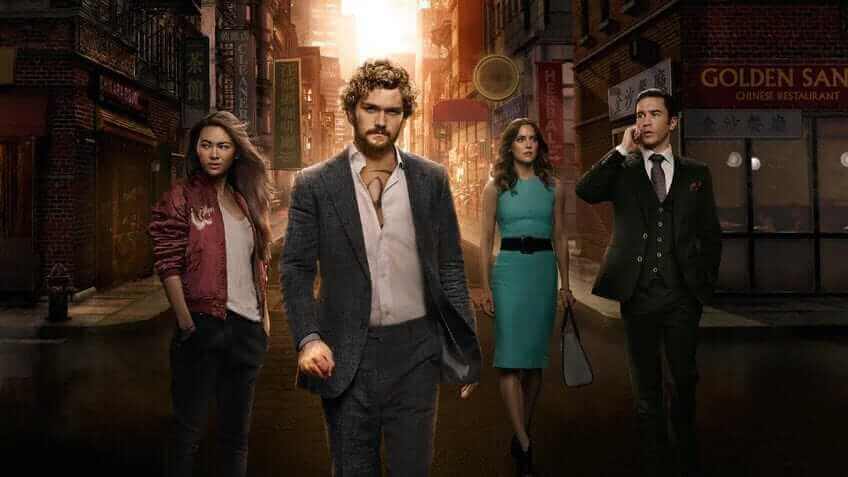





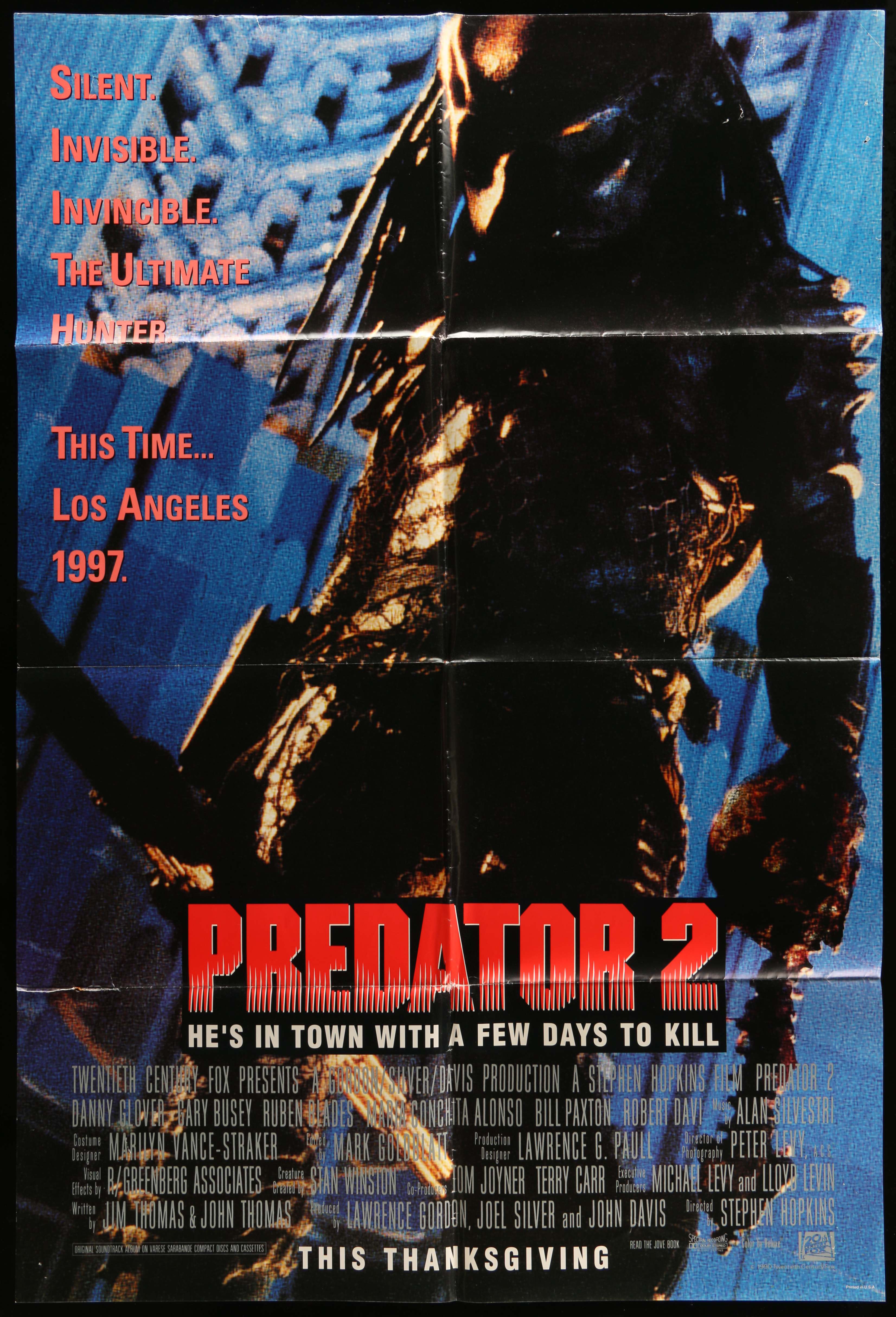



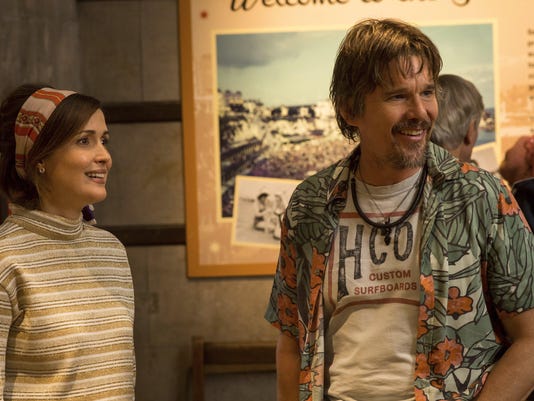




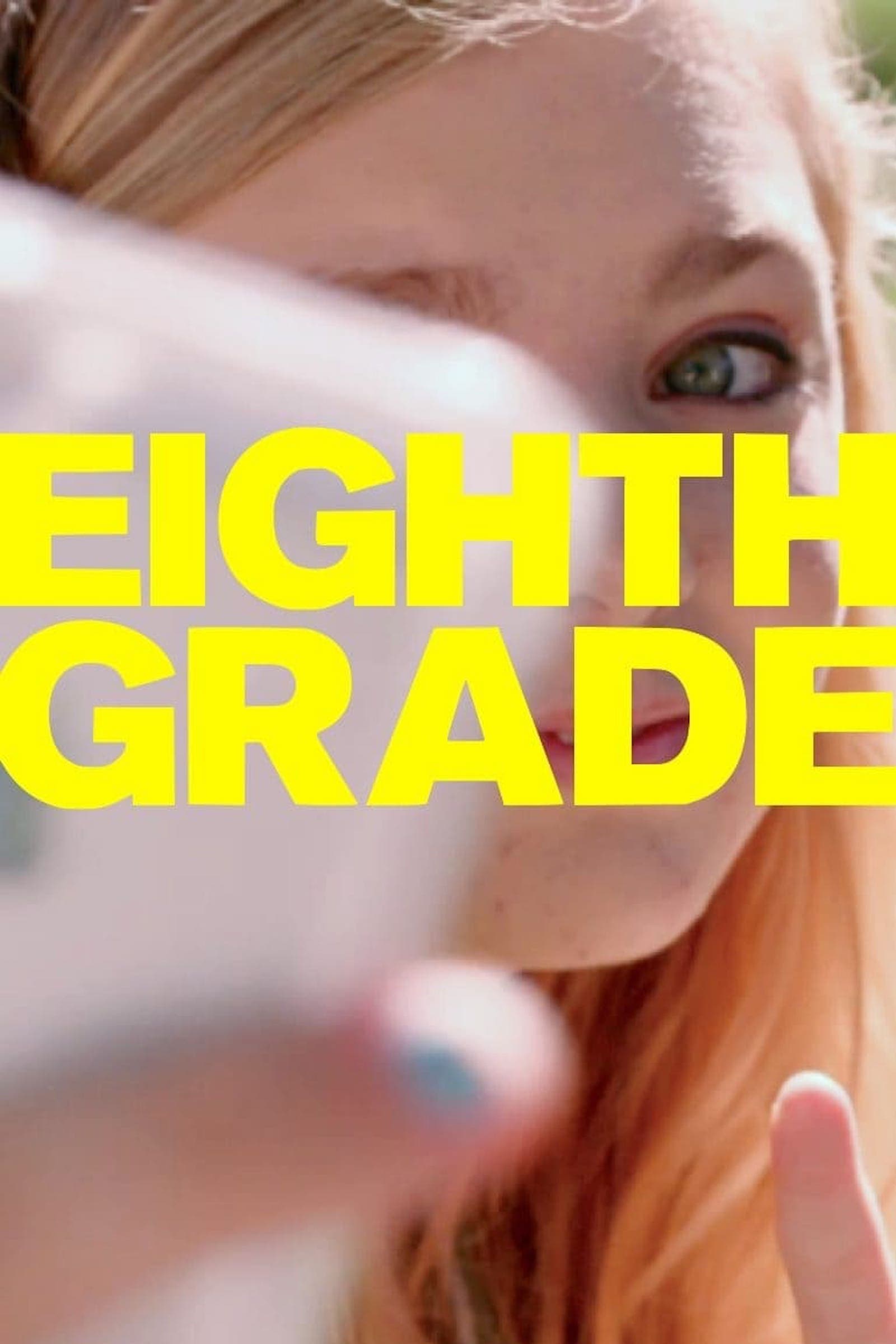
/cdn.vox-cdn.com/uploads/chorus_image/image/60352141/eighthgrade1.0.jpg)
/cdn.vox-cdn.com/uploads/chorus_image/image/60281421/aggretsuko.0.jpg)
